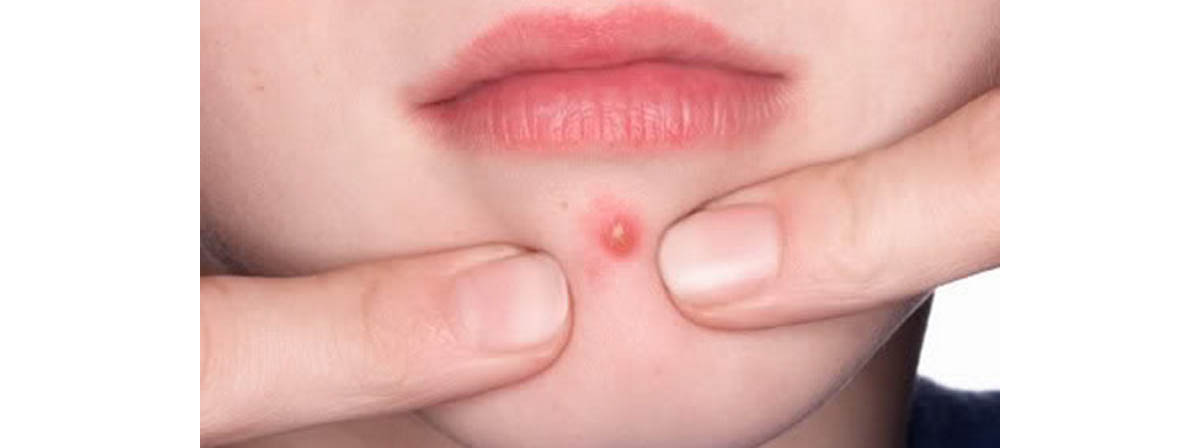Table of Contents
Psychiatric researchers have developed a new term for compulsive picking at pimples, blackheads, and whiteheads that keeps them from healing. This term is psychogenic excoriation. Some children, teens, and adults who have acne pick at their skin so many times that not only does healing become impossible, the acne lesion morphs into a skin ulcer that heals to leave an ugly, dark mark and even a permanent scar. The darker the skin, the darker the mark left by this practice.

What Is Psychogenic Excoriation? Why Do People Pick At Their Pimples?
Psychogenic excoriation is a behavior that is also labeled as acne excoriée, compulsive picking, dermatotillomania, neurotic excoriation, pathological excoriation, primary excoration, self-injurious skin picking, and self-mutilation. It affects about 1 in 50 people who have acne.
Often the individual who constantly picks at acne isn't even aware that he or she is doing it. Affected people may notice that there are numerous, dark, hyperpigmented patches of skin where they have picked at acne that eventually healed, but they may somehow not see the red, oozy, ulcerated patches of skin they are constantly irritating now.
Psychogenic excoriation is almost always a co-morbidity, that is a concurrent illness, with some other diagnosable psychological or psychiatric complaint. People who pick at acne constantly often suffer bouts of depression, crying spells, mood swings, and altered states of consciousness. In elementary age children, the picking usually increases during times of stress. In adolescents, psychogenic excoriation is often more frequent during leisure time. In adults, picking at acne may be more common during periods of moderate to major depression.
Psychological Associations with Psychogenic Excoriation
Psychogenic excoriation isn't just picking at a single pimple that has become particularly annoying. It is a process of picking at acne all over the body repeatedly, not just on the face, but often also on the arms, chest, neck, shoulders, inner thighs, and groin. Essentially everyone who develops the habit has some kind of diagnosed or diagnosable psychological conditions, most commonly:
- Alcoholism or alcohol dependence
- Anxiety
- Depression
- Obsessive-compulsive disorder
- Oppositional defiance disorder, or
- Some combination of the above.
In the experience of doctors who deal with the condition on a regular basis, essentially everyone who has full-blown psychogenic excoriation has some other psychiatric diagnosis. The methods used to treat psychogenic excoriation, however, also work for people who have a less severe "bad habit" of pimple picking that they simply want to get under control.
People who are diagnosed with psychogenic excoriation often are offered antidepressant drugs of the selective serotonin re-uptake inhibitor (SSRI) class, but people who simply have a habit they want to change may not need any drugs at all to stop picking at their pimples.
- Anetakis Poulos G, Alghothani L, Bendo S, Zirwas MJ. Neurotic excoriations: a diagnosis of exclusion. J Clin Aesthet Dermatol. 2012 Feb. 5(2):63-4. PMID: 22468175 [PubMed].
- Nirmal B, Shenoi SD, Rai S, Sreejayan K, Savitha S. 'Look beyond skin': psychogenic excoriation - a series of five cases. Indian J Dermatol. 2013 May. 58(3):246. doi: 10.4103/0019-5154.110885.
- Photo courtesy of smweb2 by Photobucket : media.photobucket.com/user/smweb2/media/acne.jpg.html?filters[term]=acne&filters[primary]=images&filters[secondary]=videos&sort=1&o=18
- Photo courtesy of William Hartz by Flickr : www.flickr.com/photos/whartz/1254441767/

